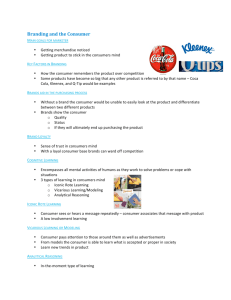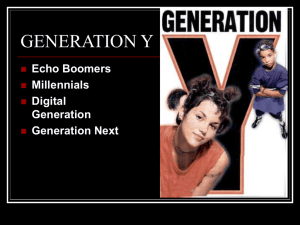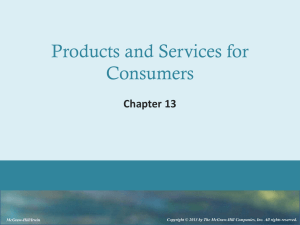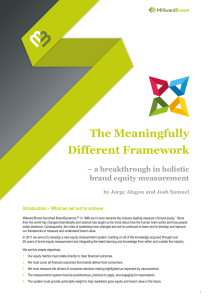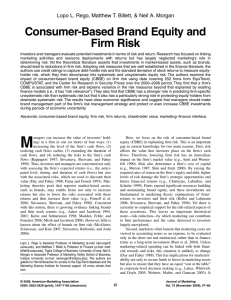Innocent Drinks: Values and Value Robert Brown & David Grayson, 2008
advertisement
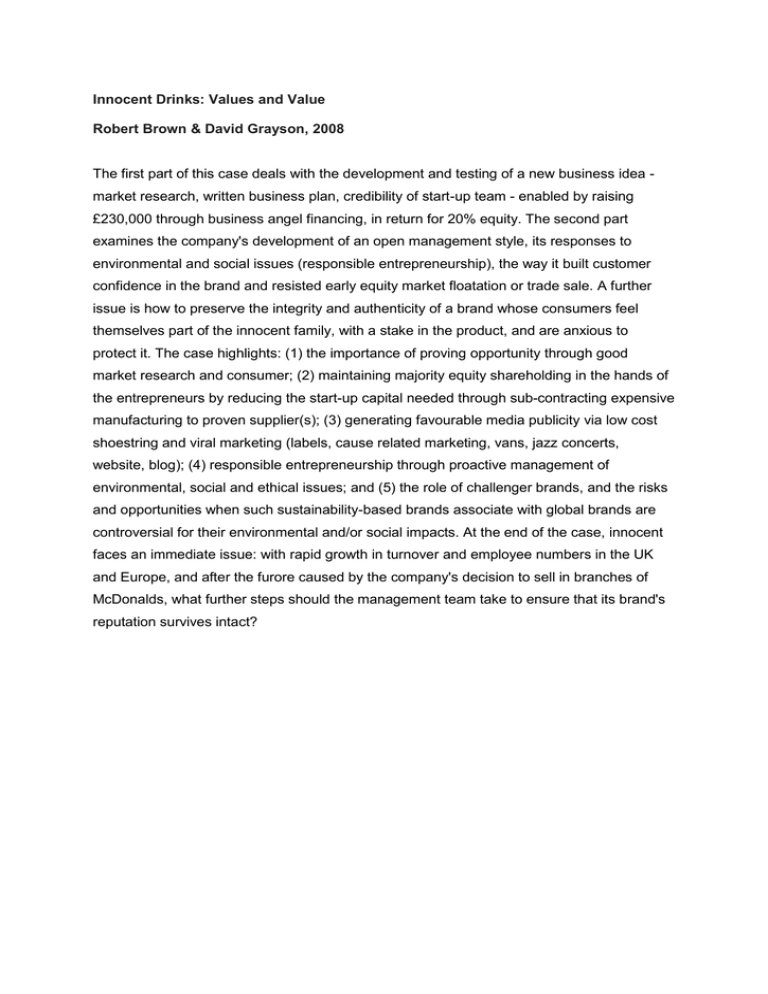
Innocent Drinks: Values and Value Robert Brown & David Grayson, 2008 The first part of this case deals with the development and testing of a new business idea market research, written business plan, credibility of start-up team - enabled by raising £230,000 through business angel financing, in return for 20% equity. The second part examines the company's development of an open management style, its responses to environmental and social issues (responsible entrepreneurship), the way it built customer confidence in the brand and resisted early equity market floatation or trade sale. A further issue is how to preserve the integrity and authenticity of a brand whose consumers feel themselves part of the innocent family, with a stake in the product, and are anxious to protect it. The case highlights: (1) the importance of proving opportunity through good market research and consumer; (2) maintaining majority equity shareholding in the hands of the entrepreneurs by reducing the start-up capital needed through sub-contracting expensive manufacturing to proven supplier(s); (3) generating favourable media publicity via low cost shoestring and viral marketing (labels, cause related marketing, vans, jazz concerts, website, blog); (4) responsible entrepreneurship through proactive management of environmental, social and ethical issues; and (5) the role of challenger brands, and the risks and opportunities when such sustainability-based brands associate with global brands are controversial for their environmental and/or social impacts. At the end of the case, innocent faces an immediate issue: with rapid growth in turnover and employee numbers in the UK and Europe, and after the furore caused by the company's decision to sell in branches of McDonalds, what further steps should the management team take to ensure that its brand's reputation survives intact?
